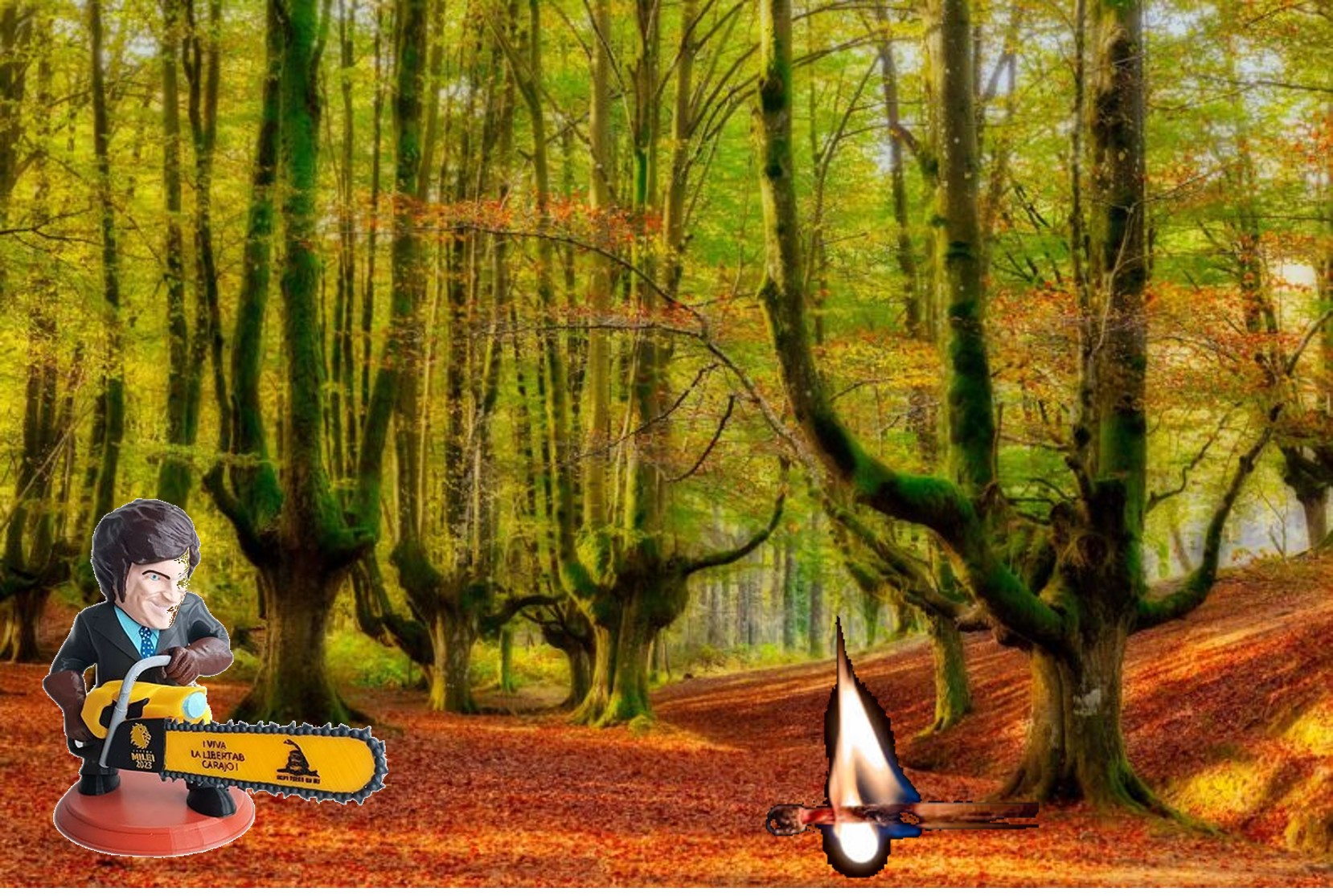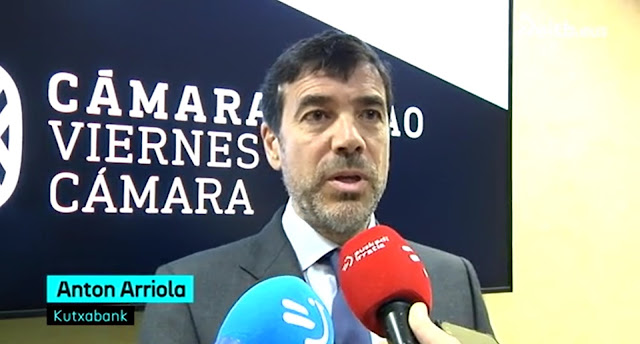50 years of potash strike
Today, January 21, is a day to remember and reflect on an interesting ephemeris of our recent history. It is 50 years since the lockdown of 47 workers from Potase in Navarre. This lockdown, which lasted fifteen days, caused a general strike in Navarre, the Department of the Interior reported. This mine, located between Beriáin and Undiano, was at the time the factory with the highest number of workers in the province. Many of its workers were organized into factory boards and their representatives coordinated with other factories in the so-called workers ' commissions. These commissions proved to be the main form of organization of the labor movement of the time. It was the Workers' Commissions, a unitary movement little or nothing related to the current CCOO.
Months before the lockdown, the labor commissions presented the employers with a list of economic demands and joint policies for the workers of several factories. Demands included wage increases and the right of assembly. The employers' rejection of a general strike called the workers on 11 December last in many parts of the Basque Country. At the beginning of January, after more than a month of strike, they were sentenced to two months in prison for refusing to leave the strike without any work or pay. Faced with the aggression, the strikers decided not to return to work and increased their wager: they organized a lockdown to give continuity to the fighting process, which lasted fifteen days. The question was who would get the power: whether the forces of the company and the regime or those of the organised workers.
In solidarity and unity, on 15 January a general strike of a political nature was convened throughout Navarre with the aim of serving as an instrument of struggle to support the confinement and to put pressure on the employers and the State in relation to the demands of the workers movement. The strike lasted until the end of the lockdown and left us: 20,000 strikers from 50 companies, daily mobilizations, closing shops, student strikes... It was an integral struggle of the entire working class.
Beyond dates, names and places, what we have to remember and make live is the principle of solidarity for all members of the working class, without nostalgia
It is noteworthy that the level of organization of the participants in the confinement was very high, both in the work before the confinement and during the fifteen days it lasted, and was a clear example of the maturity of the labor movement. In this sense, the high level of awareness developed in it stands out, taking advantage of this space of struggle for training and political debate. In addition, the confinement had negative effects on the regime. It is the largest company in Navarre, Potas de Navarra, owned by the State. On the other hand, we must not forget the contribution made by the great strike that accompanied the lockdown in the midst of the Franco crisis.
Among the conclusions of the struggle is the repression of the bosses against the workers who were in lockdown. They were all expelled and fined. However, thanks to the organized solidarity of the working class, both factory colleagues and neighbors and friends, the repressive allies managed to get a new job, pay fines, meet their vital needs while seeking another job... Both in the moments of mobilization and in the moments of regression, the unit of the working class was an example. The lockdown allowed that conflict, which had been coming since the fall of 1974, to be destined for one of the most successful strikes in Navarre. Thanks to class solidarity, thousands of workers from all over Navarre took over the struggle of workers from a factory. The workers knew that only by joining forces could they achieve their goals.
For, beyond dates, names and places, this principle of solidarity towards all members of the working class is what we must remember and make live, without nostalgia, so that we can act with workers solidarity in the face of all the attacks of the entrepreneurs and managers of this capitalist society in crisis. Indeed, this principle agglutinated the workers at the time, which strengthened them in the face of the repression and the sanctions they intended to distribute, and that is precisely the principle that should guide us today.
Imanol Kañamares, member of the Socialist Council of the Region of Pamplona
Bidali zure iritzi artikuluak iritzia@argia.eus helbide elektronikora
ARGIAk ez du zertan bat etorri artikuluen edukiarekin. Idatzien gehienezko luzera 4.500 karakterekoa da (espazioak barne). Idazkera aldetik gutxieneko zuzentasun bat beharrezkoa da: batetik, ARGIAk ezin du hartu zuzenketa sakona egiteko lanik; bestetik, egitekotan edukia nahi gabe aldatzeko arriskua dago. ARGIAk azaleko zuzenketak edo moldaketak egingo dizkie artikuluei, behar izanez gero.
You may not know who Donald Berwick is, or why I mention him in the title of the article. The same is true, it is evident, for most of those who are participating in the current Health Pact. They don’t know what Berwick’s Triple Objective is, much less the Quadruple... [+]
The article La motosierra puede ser tentadora, written in recent days by the lawyer Larraitz Ugarte, has played an important role in a wide sector. It puts on the table some common situations within the public administration, including inefficiency, lack of responsibility and... [+]
Is it important to use a language correctly? To what extent is it so necessary to master grammar or to have a broad vocabulary? I’ve always heard the importance of language, but after thinking about it, I came to a conclusion. Thinking often involves this; reaching some... [+]
The other day I went to a place I hadn’t visited in a long time and I liked it so much. While I was there, I felt at ease and thought: this is my favorite place. Amulet, amulet, amulet; the word turns and turns on the way home. Curiosity led me to look for it in Elhuyar and it... [+]
Adolescents and young people, throughout their academic career, will receive guidance on everything and the profession for studies that will help them more than once. They should be offered guidance, as they are often full of doubts whenever they need to make important... [+]
We have had to endure another attack on our language by the Department of Education of the Government of Navarre; we have been forced to make an anti-Basque change in the PAI program. In recent years, by law, new Model D schools have had to introduce the PAI program and have had... [+]
Public education teachers have the need and the right to update and improve the work agreement that has not been renewed in fifteen years. For this, we should be immersed in a real negotiation, but the reality is deplorable. In a negotiation, the agreement of all parties must be... [+]
A few weeks ago, on Diputación Street, in the centre of Vitoria-Gasteiz, two men threw a homeless person off the small landing outside the place where he slept. In addition to being thrown away, a metal railing was immediately placed in front of the lonja. Although the place... [+]
From linguistics or glotophobia and, of course, hatred against Basque, we have often seen our Basque become the dandruff of all sticks. Last of all, the president of Kutxabank, Anton Arriola, has been shaking our language and giving us galantas.The President of Kutxabank,
... [+]
Do not look for this connection from Ezkio or Altsasu, let alone crossing the Ebro River through Castejón. The connection, or rather the connections, between the Basque Y and the AVE of Navarre is already a reality. It is these links in the plural that should concern us and... [+]
Don't make a fuss, don't confront, don't victimize... and obey. As oppressed subjects, in this case as Basques, we talk, how many times have we had to listen to them? Ironically, two years ago, at the Euskalale Independentiston Meeting, Esne Arzallus said: "We have arrived here,... [+]
Aurten "Israel Premier Tech" txirrindularitza talde israeldarra ez da Lizarraldeko Miguel Indurain Sari Nagusia lasterketara etorriko. Berri ona da hori Palestinaren askapenaren alde gaudenontzat eta munstro sionistarekin harreman oro etetea nahi dugunontzat, izan... [+]
Intsumituek denbora luzez egindako borroka gogorra eta mingarria izan zen, baina irabazi zuten, eta garaipen hura behin betikoa izango zela uste genuen, atzera bueltarik gabea. Baina badirudi, politikari batzuen ahotik aterata, eskalada militaristari gorazarre egin eta berriz... [+]
Punto Bobo liburuaren irakurketan murgilduta, Itxaso Martin Zapirain egilearen Eromena, Azpimemoria eta Isiltasunak Idazten ikerketa lanean sentitu nuen egiazkotasun eta maila etikoarekin egin dut berriz ere topo. Eta hortaz, hara bueltatu. “Oihu izateko jaio zen isiltasun... [+]










